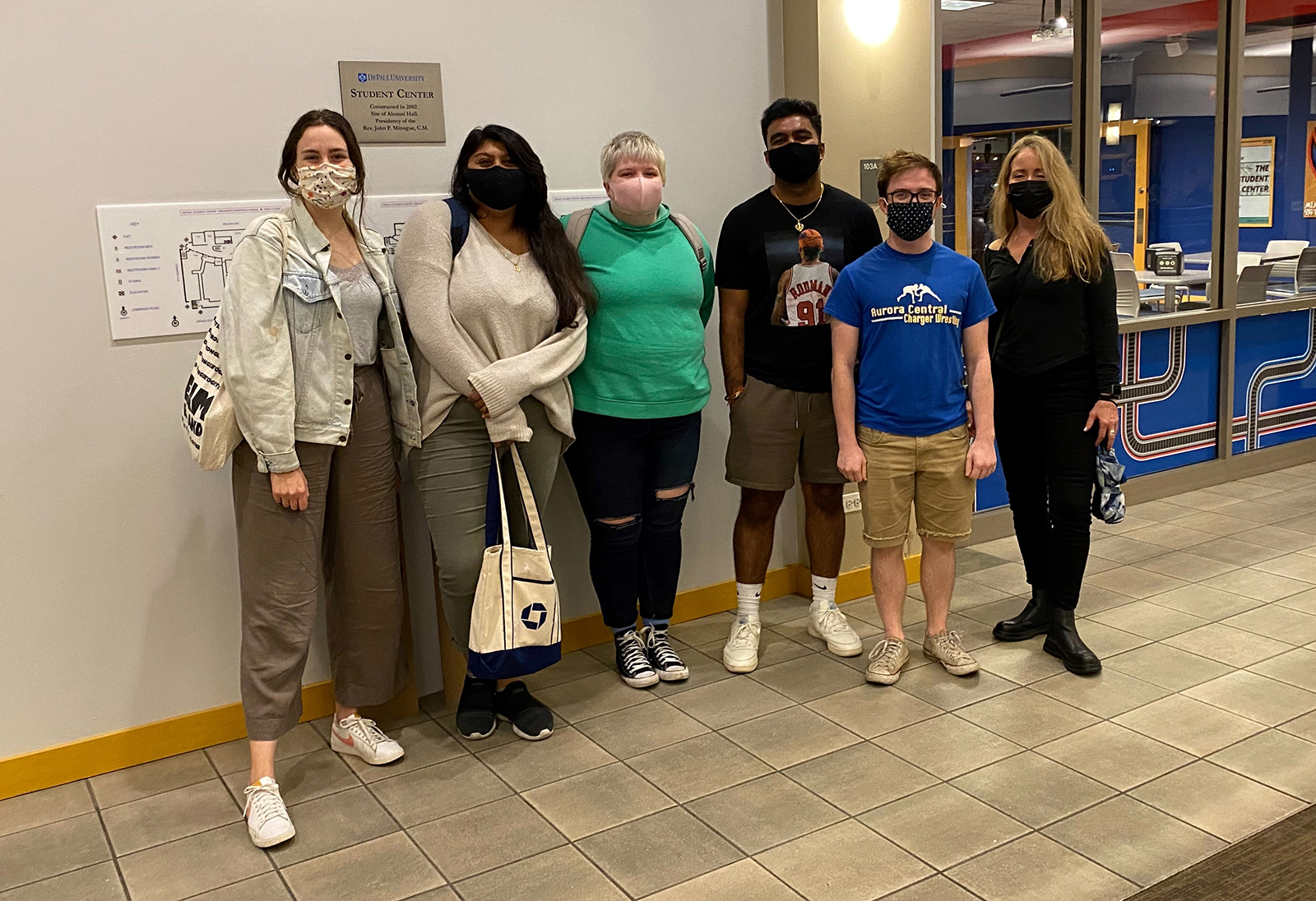 Student group DePaul Sanctuary has activated a peer mentor network to welcome refugee students to campus. Student leaders in the group Avery Tunstill, Dilpreet Kaur, Chloe Broughman, Gurvir Gill and Michael Schmidt met with their faculty sponsor Kathleen Arnold. (Image courtesy of Kathleen Arnold).
Student group DePaul Sanctuary has activated a peer mentor network to welcome refugee students to campus. Student leaders in the group Avery Tunstill, Dilpreet Kaur, Chloe Broughman, Gurvir Gill and Michael Schmidt met with their faculty sponsor Kathleen Arnold. (Image courtesy of Kathleen Arnold). The DePaul community is in the process of welcoming a group of 10 students who were displaced during the recent crisis in Afghanistan. A committee of DePaul faculty and staff, with the support of various student organizations, has been planning with resettlement agency
RefugeeOne for their arrival.
“DePaul has a long history of welcoming immigrants, refugees and displaced people. This is at the heart of our Vincentian mission,” says GianMario Besana, associate provost for global engagement. “This is not the first time we’ve helped displaced students to be successful at DePaul, but it’s the first time we’ve done so at this scale.”
Upon their arrival this month, students will enroll immediately in DePaul’s English Language Academy, a full-time intensive English program for international students. Faculty will assess students’ English proficiency and academic interests. They will then be able to transfer into the undergraduate program of their choice.
RefugeeOne is providing students with support in navigating the U.S. State Department’s resettlement process, as well as with health and mental health services. At the same time, DePaul has been gathering materials and supplies, from clothing, to toiletries and household items, to help the students adjust to their new environment. The university is also connecting these students with scholarship opportunities to ensure their college experience remains affordable.
“We are responding to the Vincentian question, ‘What must be done?”’ says Emily Kraus, assistant director of global engagement. “There has been a tremendous outpouring of support from the DePaul community.”
Students have been central to the effort to bring the new members of the DePaul community into the fold. Student groups DePaul Sanctuary and DePaul UMMA -- United Muslims Moving Ahead -- have activated groups of peer mentors to befriend the students, showing them around Chicago and offering ongoing support during this transition.
One of the DePaul students serving as a peer mentor is Gurvir Gill, an undergraduate majoring in political science and an officer with DePaul Sanctuary. He has seen a surge of support from students this quarter with the return of in-person engagement.
“It’s been awesome to see all of this enthusiasm being channeled,” Gill says. “As students we thought the best way we could help is by being friends with the new arrivals. Extending a hand of friendship is our main goal.”
Kathleen Arnold, faculty sponsor for DePaul Sanctuary, says she feels privileged to work so closely on these issues.
“I am so grateful to have passionate, empathetic students who have initiated so much to help these new students. My students truly embrace the Vincentian mission and collaborating as a team on these issues. They are inspiring,” Arnold says.
As a global city, Chicago welcomes refugees from all over the world. In the weeks and months ahead, RefugeeOne expects more than 1,500 Afghans will make their home here in Chicago. DePaul has an ongoing collaboration with the agency, which hosts interns from the
Refugee and Forced Migration Studies program in the College of Liberal Arts and Social Sciences.
Members of the DePaul community who would like to contribute supplies or other support to this effort should email
ekraus@depaul.edu.